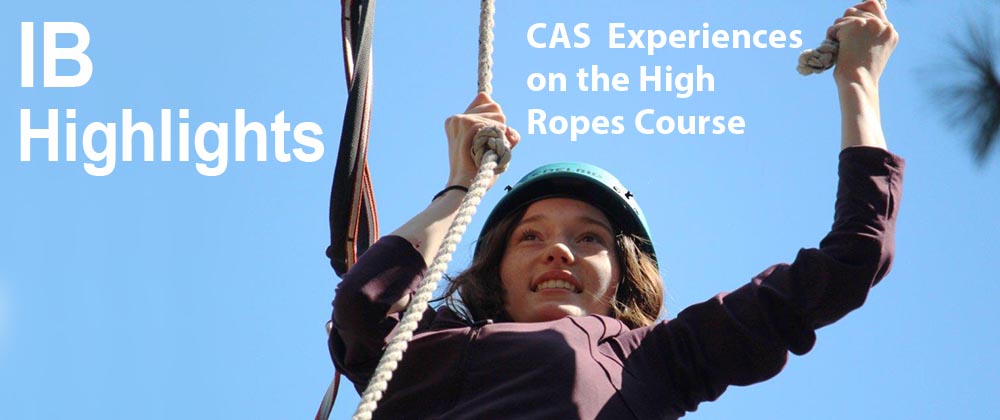IB Highlights: Why IB?
September 13, 2021

This week we will begin including IB Highlights in the website news section. Please refer to the International Baccalaureate page on the SGS website and to the IB Resources page in PowerSchool Learning for detailed IB information. As an overview, the Diploma Programme (DP) curriculum for grades 11-12 is made up of six subject groups and the DP core, comprising theory of knowledge (TOK), creativity, activity, service (CAS) and the extended essay (EE).
Weekly Highlights may include information regarding:
• Weekly Question: Please email Elizabeth.tender@sgs.org with any IB questions you may have, otherwise she will pick one to answer. We will highlight one per week.
• CAS Experiences: All of our Upper School students, pre-IB (grades 9-10), full diploma candidates and course candidates, complete CAS experiences with reflections.
• CAS Project: Our full diploma students complete CAS projects that follow an 18-month portfolio, full of reflections. We will highlight one per week, with student permission.
• EE: Seniors spend a year researching and writing a 4000-word extended essay on a topic of their choice. We will highlight one per week, with student permission.
CAS Experience Highlights: CAS experiences for all of our Upper School students this past week included volunteering at the Spokane Humane Society, cleaning the Saint George’s trail, attending the Freshman campout, attending the Sophomore campout, engaging in the ropes course at Camp Reed, attending the Senior overnight, helping with the 5th grade float, learning to fish, modeling, organizing a goodbye party, and hiking.
IB Question of the Week: Why IB? (Elizabeth Tender, SGS IB Coordinator, asked IB alumni and others in a Facebook group and these are the responses from across the world.)
• IB is a way of life.
• IB is a tool to build the characteristics or learner profile to become an effective individual in our world.
• Students are life-long learners who adapt to the needs of the real world.
• IB learning is not the usual traditional learning, but rather places the learner into real world situations, developing both knowledge and skills to be able to overcome the challenges in the world.
• Students have strong voice, choice and ownership in IB learning.
• IB students develop strong academic, social and emotional characteristics.
• Students learn how to learn.
• Students become self-regulated learners.
• IB learning forces students to think outside the box.
• IB learning is not the cookie cutter style or one size fits all.
• In IB, you can have 12 different ways to the same problem, and they can all be correct.
• IB lets students find the how and why things work, not just memorizing facts from the teacher.
• IB learning combines knowledge with exploration through a global lens.
• With IB learning, students practice self-assessment, adjusting perspective, and bouncing back for correction.
• IB learning is inquiry based.
• Students are encouraged to think critically and solve complex problems.
• Students drive their own learning.
• IB learners are able to engage with people in an increasingly globalized, rapidly changing world.
• Ultimately, students will need to decide who they want to be in this world. There are many things outside of school that will influence that choice, but school is still very influential. Critically thinking about their own beliefs and decisions, and the beliefs and decisions of others puts them in a good place to make a better decision about who they might want to become.
• The world has changed; educators are no longer needed to tip content into our students, but to create environments for conceptual teaching and learning so that students can learn beyond the boundaries of traditional subjects. Knowledge is transfer - the ability to see patterns and make connections. Concept based teaching and learning in the IB is such a powerful tool.
• IB demands that students engage in inquiry and investigate. It lets them give their own perspective, makes life-long learners by making them responsible for their own learning and teaches them to take action and reflect on their learning, keeping in mind the learner profile.
• IB is a way of transforming societies through individuals for the good of the whole of mankind.
• Because of Creativity, Activity and Service (CAS), IB creates an opportunity to learn skills through real life experiences.
• I changed careers to teaching after sending my kids to an IB school - the creativity, passion, and push towards independence for students sold me!
• IB checks the understanding of a concept.

